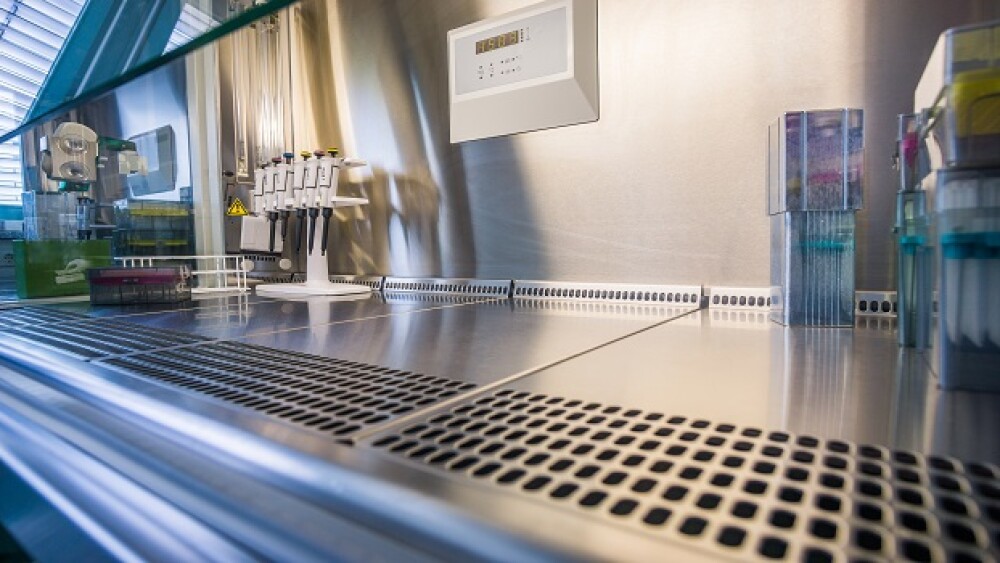Work in the age of COVID-19 is in flux. Restrictions change daily, and life sciences researchers are finding their work lives considerably different than they were a few short weeks ago.
Work in the age of COVID-19 is in flux. Restrictions change daily, and life sciences researchers are finding their work lives considerably different than they were a few short weeks ago. BioSpace polled its readers between March 11th and 15th to learn their experiences. Here’s what they said.
Of the respondents, nearly 84% said the COVID-19 outbreak was affecting their work. Only 11% said it had no impact. Just 5% weren’t certain.
In some labs, studies are being delayed or priorities are shifting to developing vaccines or therapeutics targeting COVID-19. At the same time, virologists are working at a frenetic pace to develop vaccines, and labs are trying to develop COVID-19 diagnostics tests that are faster, easier.
Effects became noticeable in early March. Olga Ovchinnikova, PhD., senior R&D scientist, Oak Ridge National Labs noted fewer visitors were onsite. At the time, Tennessee had relatively few cases of COVID-19 but, she noted, “No one coming from abroad can enter the national labs.”
That’s about the time that meetings and conferences began canceling. For some, a canceled conference is an inconvenience. For those like Sapphire Biotech, they are missed strategic opportunities.
Sapphire’s co-founder, Douglas Lake, Ph.D., was scheduled to present data at the (now-canceled) American Association for Cancer Research (AACR) about a highly potent compound, SBI-183 and an analog, to inhibit the spread of metastasis.
“This meeting would have been very beneficial for us in many regards – the AACR is a very important gathering of many leading brands and names in cancer therapeutics, diagnostics, and research. We believe widespread interest would have been generated,” said Catalina Valencia, CEO of Sapphire.
At California-based Boster Biological Technology, which develops antibodies and ELISA kits, CJ Xia, VP of marketing and sales, said researchers have more time to complete their research because travel and meetings have been postponed.
“They are using their time for future tasks, multitasking to minimize future delays,” Xia said.
The need for employees to work from home is delaying research, slowing productivity.
The unsettledness being felt throughout society in the face of the rapid upheaval of daily routines is reflected in the workplace. Respondents to the BioSpace poll report people are distracted. One respondent said, “There is unclear, chaotic direction at work. It’s not based on science.” Others reported time spent in emergency planning meetings, to the detriment of their routine work. As one respondent said, “I’ve spent the last week mostly dealing with planning requests from multiple sources that replicate each other.”
In an effort to flatten the outbreak curve, companies are asking employees to work from home. Some respondents report that only essential facilities are open, and only research personnel are expected to report for work.
Now the CDC recommends banning all gatherings of more than 50 people. President Trump on Monday suggested further limiting gatherings to groups of no more than 10 people. Anthony Fauci, M.D., director of the National Institute of Allergy and Infectious Diseases, Sunday hinted of a potential 14-day, nationwide shutdown.
Governors in California, Connecticut, Illinois, Michigan, New Jersey, Ohio, Puerto Rico and Washington ordered all restaurants closed because of coronavirus. Other states, including New York and Pennsylvania, have restricted restaurant service to takeout.
For many in the life sciences, this means corporate cafeterias are closed. They must bring their own lunches or, where possible, order in. And, with social distancing in force, they must dine well-away from others, limiting the cross-fertilization of ideas and, thus, possibly limiting innovation.
The pandemic does provide opportunities, however. One respondent cited the ability to engage in new forms of working and closer collaborations. Success requires individual resiliency, though.
Although the work itself may not be severely affected, one respondent said, “It is challenging having to conduct regular meetings via video chat.” Despite the technology, “It isn’t the same as having open-space floor conversations.”
The challenges posed by the COVID-19 pandemic include availability of supplies, too, Xia pointed out. “Shipments of various laboratory supplies and products have been canceled and in most cases, the delivery of most of the supplies got delayed. The laboratory often has not been even notified of any delays and cancellations,” Xia said, making it difficult to choose alternative solutions and severely affecting the productivity of laboratory research.”
The picture, though challenging, isn’t entirely bleak, though. One respondent said work/life balance actually was better because the pandemic forces employers to allow staff to work from home.






